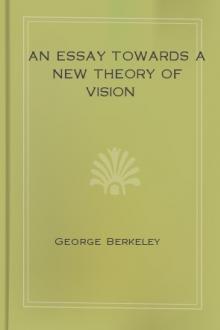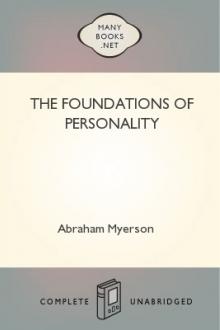Genre Psychology. Page - 3

wer into your Being. Will power into your work. Will power into your ambitions. Will power into your expressions. Will power into your words. And you shall be "a fellow workman with God, a master builder that needeth not to be ashamed." Your Will gives infinite clearness, infinite strength, infinite ideals, infinite aspirations, for infinite realities. Your Will tells you that if there is anything to-day that seems to you too good to be true, believe it, endeavor toward it, reach forth to receive it, and tomorrow it will be true. Will is the engine in the depths of the ship that drives it thru the buffeting waves and storm to the distant harbor. Will puts your back-bone where your wish-bone is now. Will puts iron into your blood, tightens up your vertebrate and makes you "a self-starter." You may have lost your battle, your Will stands ready for another better campaign. You miss an opportunity, your Will stands ready to open the door to a hundred new ones. Delay is the mother of most failures. One thing worse

understood to-day, means a part of the subject and not the whole.
[Footnote: A series of waggish critics has evolved the following: "First psychology lost its soul, then it lost its mind, then it lost consciousness; it still has behavior, of a kind."]
The best way of getting a true picture of psychology, and of reaching an adequate definition of its subject-matter, would be to inspect the actual work of psychologists, so as to see what kind of knowledge they are seeking. Such a survey would reveal quite a variety of problems under process of investigation, some of them practical problems, others not directly practical.
Varieties of Psychology
Differential psychology.
One line of question that always interests the beginner in psychology is as to how people differ--how different people act under the same circumstances--and why; and if we watch the professional psychologist, we often find him working at just this problem. He tests a great number of individuals to see how they

g any other IDEA. If I do not perceive theredness or paleness of a man's face themselves, it is impossible I shouldperceive by them the passions which are in his mind.
11. Now from sect. 2 it is plain that distance is in its own natureimperceptible, and yet it is perceived by sight. It remains, therefore,that it be brought into view by means of some other IDEA that is itselfimmediately perceived in the act of VISION.
12. But those LINES and ANGLES, by means whereof some MATHEMATICIANSpretend to explain the perception of distance, are themselves not at allperceived, nor are they in truth ever thought of by those unskilful inoptics. I appeal to anyone's experience whether upon sight of an OBJECT hecomputes its distance by the bigness of the ANGLE made by the meeting ofthe two OPTIC AXES? Or whether he ever thinks of the greater or lesserdivergency of the rays, which arrive from any point to his PUPIL? Everyoneis himself the best judge of what he perceives, and what not. in vainshall all the M

ave previously taken special notice of what I now have an image of. For instance, when I have an image of a certain person I cannot tell his particular characteristics unless my attention was formerly directed to them.'
"Another writes: 'There is no sound in connection with any image. In remembering, I call up an incident and gradually fill out the details. I can very seldom recall how anything sounds. One sound from the play "Robespierre," by Henry Irving, which I heard about two years ago and which I could recall some time afterward, I have been unable to recall this fall, though I have tried to do so. I can see the scene quite perfectly, the position of the actors and stage setting, even the action of a player who brought out the sound.'
"Quite a large proportion of persons find it impossible to imagine motion at all. As they think of a football game, all the players are standing stock-still; they are as they are represented in a photograph. They are in the act of running, but no motion is re

or humiliation, the information involved may be denied, disavowed, negated, or shifted in meaning to prevent a reactive state of rage, depression, or shame." [Ibid.]
The second mechanism which the narcissist employees is the active pursuit of Narcissistic Supply. The narcissist actively seeks to furnish himself with an endless supply of admiration, adulation, affirmation and attention. As opposed to common opinion (which infiltrated literature) - the narcissist is content to have ANY kind of attention. If fame cannot be had - notoriety would do. The narcissist is obsessed with the obtaining of Narcissistic Supply, he is addicted to it. His behaviour in its pursuit is impulsive and compulsive.
"The hazard is not simply guilt because ideals have not been met. Rather, any loss of a good and coherent self-feeling is associated with intensely experienced emotions such as shame and depression, plus an anguished sense of helplessness and disorientation. To prevent this state, the narcissistic personal

Gratiolet appears to overlook inherited habit, and even to some extent habit in the individual; and therefore he fails, as it seems to me, to give the right explanation, or any explanation at all, of many gestures and expressions. As an illustration of what he calls symbolic movements, I will quote his remarks (p. 37), taken from M. Chevreul, on a man playing at billiards. "Si une bille devie legerement de la direction que le joueur pretend zlui imprimer, ne l'avez-vous pas vu cent fois la pousser du regard, de la tete et meme des epaules, comme si ces mouvements, purement symboliques, pouvaient rectifier son trajet? Des mouvements non moins significatifs se produisent quand la bille manque d'une impulsion suffisante. Et cliez les joueurs novices, ils sont quelquefois accuses au point d'eveiller le sourire sur les levres des spectateurs." Such movements, as it appeirs to me, may be attributed simply to habit. As often as a man has wished to move an object to one side, he has always pushed it to that side when forwards, he has pushed it forwards; and if he has wished to arrest it, he has pulled backwards. Therefore, when a man sees his ball travelling in a wrong direction, and he intensely wishes it to go in another direction, he cannot avoid, from long habit, unconsciously performing movements which in other cases he has found effectual.
As an instance of sympathetic movements Gratiolet gives (p. 212) the following case:--"un jeune chien A oreilles droites, auquel son maitre presente de loin quelque viande appetissante, fixe avec ardeur ses yeux sur cet objet dont il suit tous les mouvements, et pendant que les yeux regardent, les deux oreilles se portent en avant comme si cet objet pouvait etre entendu."

thebrain. In fact, it does not, for the long-headed are notlong-brained, nor are the short-headed short-brained. Second, thesize and disposal of the sinuses, the state of nutrition inchildhood have far more to do with the "bumps" of the head thanbrain or character. The bump of philoprogenitiveness has in myexperience more often been the result of rickets than a sign ofparental love.
[1] It is to be remembered that phrenology had a good standing atone time, though it has since lapsed into quackdom. This is thehistory of many a "short cut" into knowledge. Thus the wisest menof past centuries believed in astrology. Paracelsus, who gave tothe world the use of Hg in therapeutics, relied in large part forhis diagnosis and cures upon alchemy and astrology.
Without meaning to pun, we may dismiss the claims of palmistryoffhand. Normally the lines of the hand do not change from birthto death, but character does change. The hand, its shape and itstexture are markedly influenced by illness,[1] toil

to him a high measure of sexual activity.
The peculiarity of this emotional and sexual life viewed in connection with Leonardo's double nature as an artist and investigator can be grasped only in one way. Of the biographers to whom psychological viewpoints are often very foreign, only one, Edm. Solmi, has to my knowledge approached the solution of the riddle. But a writer, Dimitri Sergewitsch Merejkowski, who selected Leonardo as the hero of a great historical novel has based his delineation on such an understanding of this unusual man, and if not in dry words he gave unmistakable utterance in plastic expression in the manner of a poet.[16] Solmi judges Leonardo as follows: "But the unrequited desire to understand everything surrounding him, and with cold reflection to discover the deepest secret of everything that is perfect, has condemned Leonardo's works to remain forever unfinished."[17] In an essay of the Conferenze Fiorentine the utterances of Leonardo are cited, which show his confession of fai

My memory of hospitals I have known, and my mental picture of yours made up from piecing together the memories of various ones, the recollection of the feelings I had in them, etc. (intellect).
What you already know.
Speculation (intellect), the speculation based on my knowledge of other schools (memory which is intellect). A desire (emotion) that all nurses should know psychology.
Child calling on street.
Recognition of sound (intellect) and pleasant perception of his voice (emotion).
Desire to throw work aside and go for a tramp on this gorgeous day.
Emotion, restrained by stronger emotion of interest in work at hand, and intellect, which tells me that this is a work hour--and will, which orders me to pay attention to duties at hand.
So all the phenomena of mental life are included in feelings, thoughts, and volitions which accompany every minute of my waking life, and probably invade secretly every second of my sleeping life.
